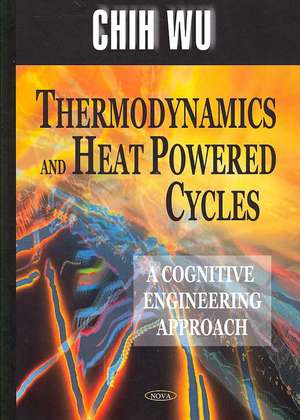Thermodynamics and Heat Powered Cycles
Autor Chih Wuen Limba Engleză Hardback – 30 noi 2007
Preț: 806.57 lei
Preț vechi: 1024.07 lei
-21% Nou
Puncte Express: 1210
Preț estimativ în valută:
154.36€ • 160.56$ • 127.43£
154.36€ • 160.56$ • 127.43£
Carte indisponibilă temporar
Doresc să fiu notificat când acest titlu va fi disponibil:
Se trimite...
Preluare comenzi: 021 569.72.76
Specificații
ISBN-13: 9781600210341
ISBN-10: 1600210341
Pagini: 659
Ilustrații: tables & charts
Dimensiuni: 188 x 264 x 42 mm
Greutate: 1.37 kg
Editura: Nova Science Publishers Inc
ISBN-10: 1600210341
Pagini: 659
Ilustrații: tables & charts
Dimensiuni: 188 x 264 x 42 mm
Greutate: 1.37 kg
Editura: Nova Science Publishers Inc
Cuprins
Basic Concepts; Properties of Thermodynamic Substances; First Law of Thermodynamics for Closed Systems; First Law of Thermodynamics for Open Systems; Second Law of Thermodynamics; Entropy; Exergy and Irreversibility; Vapour Cycles; Gas Closed System Cycles; Gas Open System Cycles; Combined Cycle and Co-Generation; Refrigeration and Heat Pump Cycles; Finite-Time Thermodynamics.
